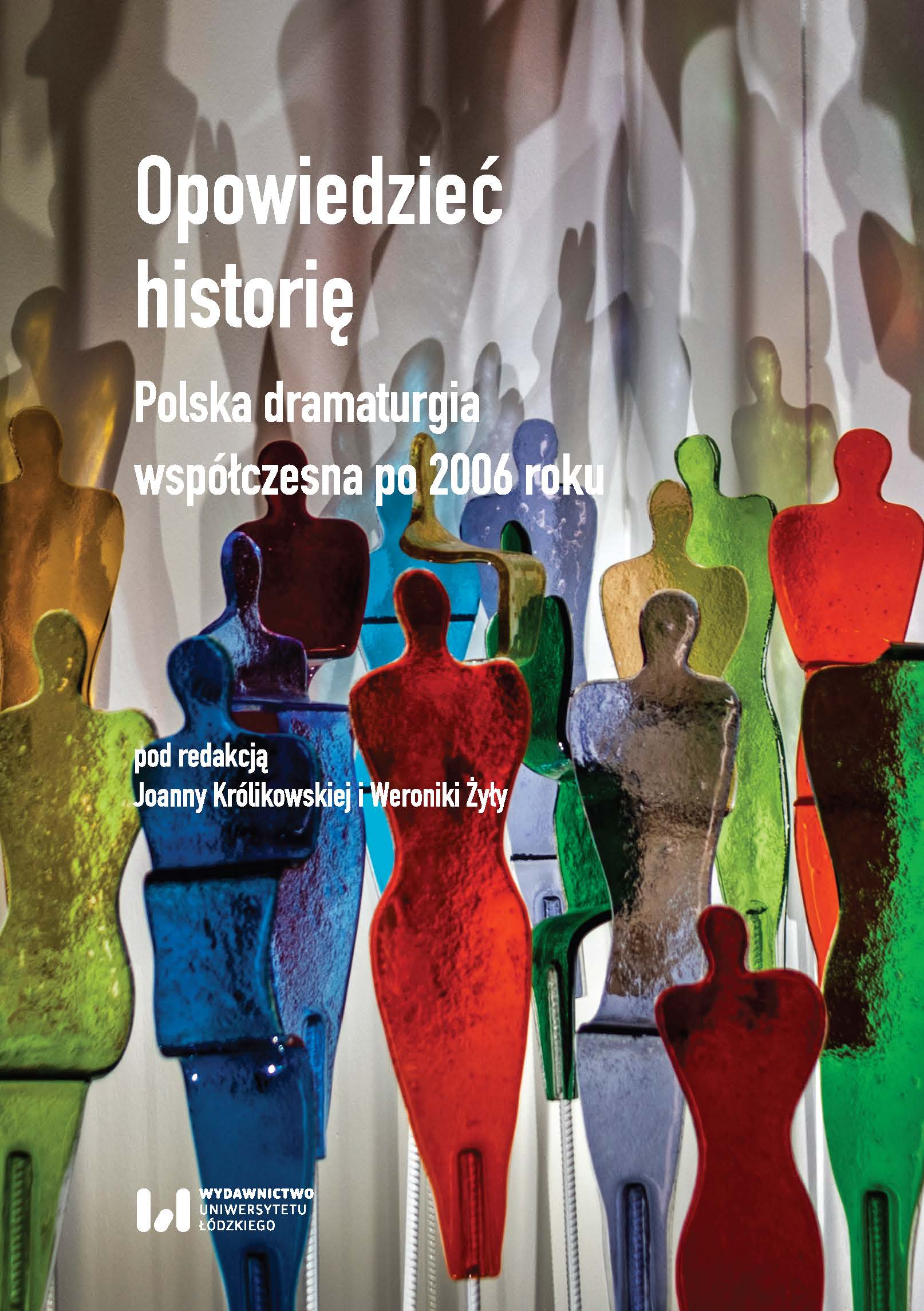Poczet Królów Polskich już nie według Jana Matejki. Historia ostatniego „wawelskiego króla” według Krzysztofa Garbaczewskiego
The Polish Kings, not according to Jan Matejko. The story of the last "Wawel King" according to Krzysztof Garbaczewski
Author(s): Judyta Pogonowicz
Subject(s): History, Theatre, Dance, Performing Arts
Published by: Wydawnictwo Uniwersytetu Łódzkiego
Keywords: Krzysztof Garbaczewski; performance; Hans Frank; Wawel; mediatisation
Summary/Abstract: The aim of the article is to analyze and interpret the performance of Poczet Królów Polskich directed by Krzysztof Garbaczewski. The premiere of the production took place on March 31, 2013 at the Stary Teatr im. Helena Modrzejewska in Krakow. Four authors were responsible for the drama of the performance: Agnieszka Jakimiak, Marcin Cecko, Sigismund Mrex (Sebastian Majewski) and Szczepan Orłowski. Despite this, the script was ready only before the premiere, which clearly shows the characteristics of Garbaczewski's work. The play is based on actors' improvisations, and the artist does not come to the institution with a ready-made project. This type of creative work is still under criticism. It is not surprising then that in 2013 many actors were outraged by the form of work imposed by Garbaczewski. Apart from the media dominating the spectacle - displaying a lively (Auslander 1999) action on a screen that obscured the stage, the content was also controversial for viewers. The cultural text produced by the director plays out Polish myths. The main axis of the action is the microhistory (Domańska 2006) of the last "king" who resided at Wawel. Hans Frank and his wife Maria Brigitte are considered other characters to be included in the King's Mail according to Jan Matejko. The spectacular Hans Frank will try to steal the tapestries and validate his position in the castle by commanding the Nordic roots of the Piasts. It will be hindered by Polish kings who, like in Wyspiański's (Miodońska-Brooks 1985), will come to life to protect Wawel. The artist provokes questions about Polishness and thought patterns about Poland, demands that history be demythised, a change in thinking about national mythology, and encourages reflection on collective memory. By adding the counter-history (Foucault 1998) of the king of the Nordic race, the director unmasks the tracing paper and historical memory that only functions as a dead archive (Taylor 2003).
Book: Opowiedzieć historię. Polska dramaturgia współczesna po 2006 roku
- Page Range: 113-128
- Page Count: 16
- Publication Year: 2023
- Language: Polish
- Content File-PDF

